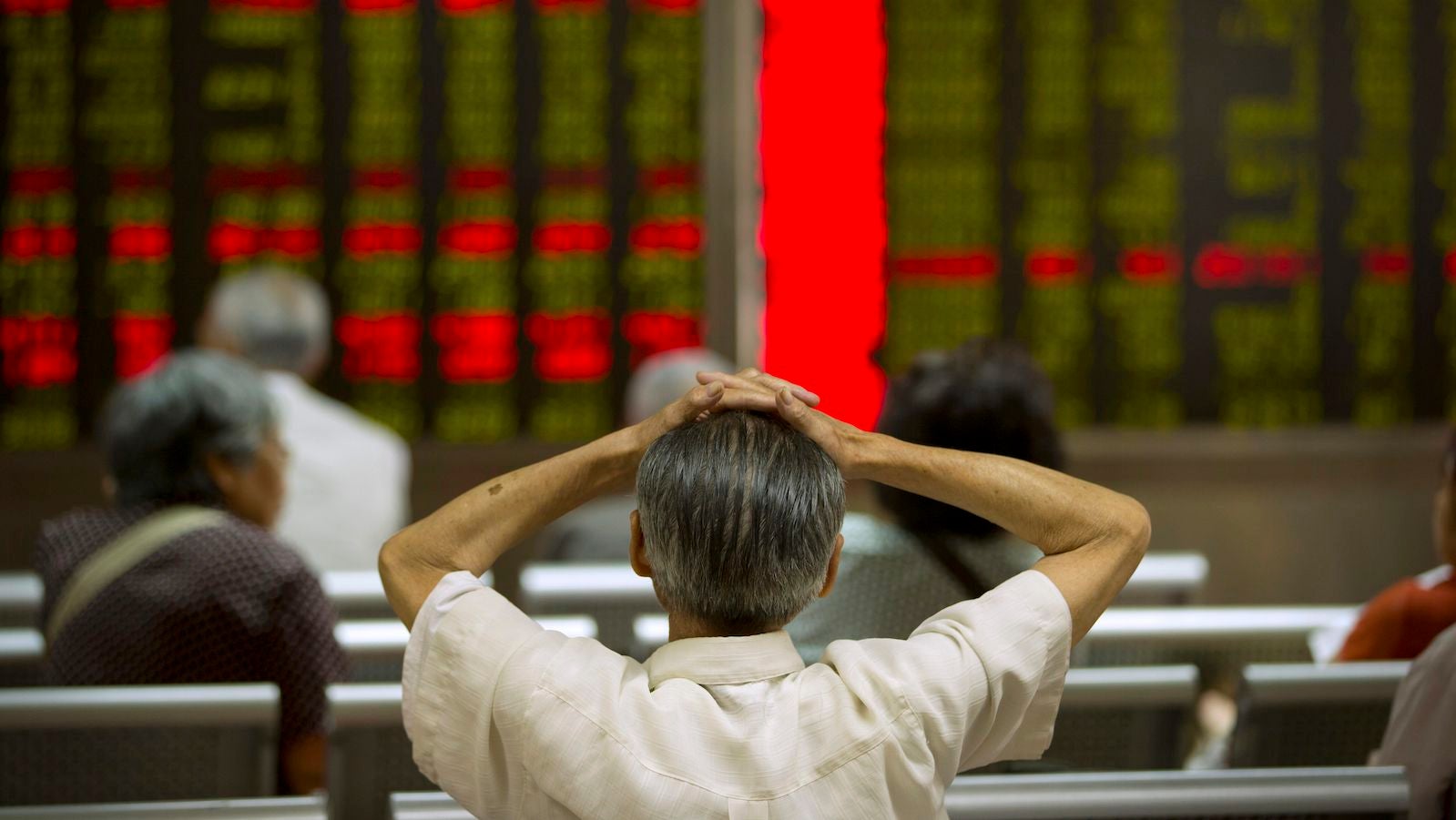A Citadel subsidiary has been targeted in China’s crackdown on “malicious” foreign short-sellers
After a month of blaming Chinese stock market swings on a shadowy legion of “malicious” foreign short-sellers, the Chinese government might finally have found the culprit.


After a month of blaming Chinese stock market swings on a shadowy legion of “malicious” foreign short-sellers, the Chinese government might finally have found the culprit.
The US-based hedge fund Citadel said on Monday one of the accounts it manages in China has been barred from trading by China’s securities regulator and is under investigation for using computer programs to manipulate prices.
Citadel confirmed in a company statement that the suspended account on the Shenzhen Stock Exchange was managed by Guosen Futures Ltd, a subsidiary of Citadel (Shanghai) Trading Ltd, which is a domestic firm wholly owned by Citadel. The suspended account was trading the firm’s own money, an anonymous source familiar with the matter told the Wall Street Journal (paywall).
This makes Guosen—and Citadel—one of the first foreign casualties of the Chinese government probe of “malicious short selling” of stocks and indexes, which state-run media and a state-owned enterprise head have blamed on “foreign forces.”
Citadel LLC is one of the world’s most reputable hedge funds, with former US Federal Reserve chairman Ben Bernanke planning to join the firm as a senior consultant on global financial and economic affairs.
But blaming foreign traders for scuttling China’s stock markets might be a bit of a stretch. Total foreign investment quotas account for less than 3% of combined tradable market capitalization in Shanghai and Shenzhen, as the Financial Times noted. The China Securities Regulatory Commission opened 28 investigations into illegal or irregular trading in July alone—more than it launched during the entire first half of the year. It has restricted 34 stock accounts suspected of irregular trading for three months, according to the regulator’s official newspaper, Shanghai Securities News (link in Chinese).
Despite the spotlight put on Citadel, domestic hedge funds manage the vast majority of the restricted accounts; most of the others are owned by individual investors, according to notices posted on the two stock exchanges. For instance, two local private hedge funds issued announcements on Aug. 1 saying a large number of bid cancellations that led to the restriction were placed by their programmed trading systems on July 8, when nearly a thousand stocks halted trading, Chinese media Caixin reported (link in Chinese).
Guosen’s account is among the 24 that China’s stock regulator has suspended for investigations into program trading, reports the New York Times (metered paywall). Of particular concern is practice known as “spoofing,” whereby trading programs place buy or sell orders large enough to move prices, and cancel those orders before they are executed.
Since the stock markets began tanking in mid-June, the regulator has fingered these high-tech manipulations as the perpetrator. The state-affiliated Shanghai Securities News wrote (link in Chinese), “Never let the bailout [meaning, the government’s all-out stock market rescue package] become the cash machine for those malicious program traders.”
But like short-selling, spoofing isn’t necessarily “malicious.” Michael Every, head of financial markets research at Rabobank Group in Hong Kong, told Bloomberg that it “works on the way up and the way down, so it’s interesting it’s only a problem when it causes equity prices to fall.”
Regardless of who is to blame, the short-selling ban hasn’t helped boost the stock markets. Both bourses fell again on Monday, with the Shanghai Composite Index down 1.1% and Shenzhen’s A share index down 2.7%: